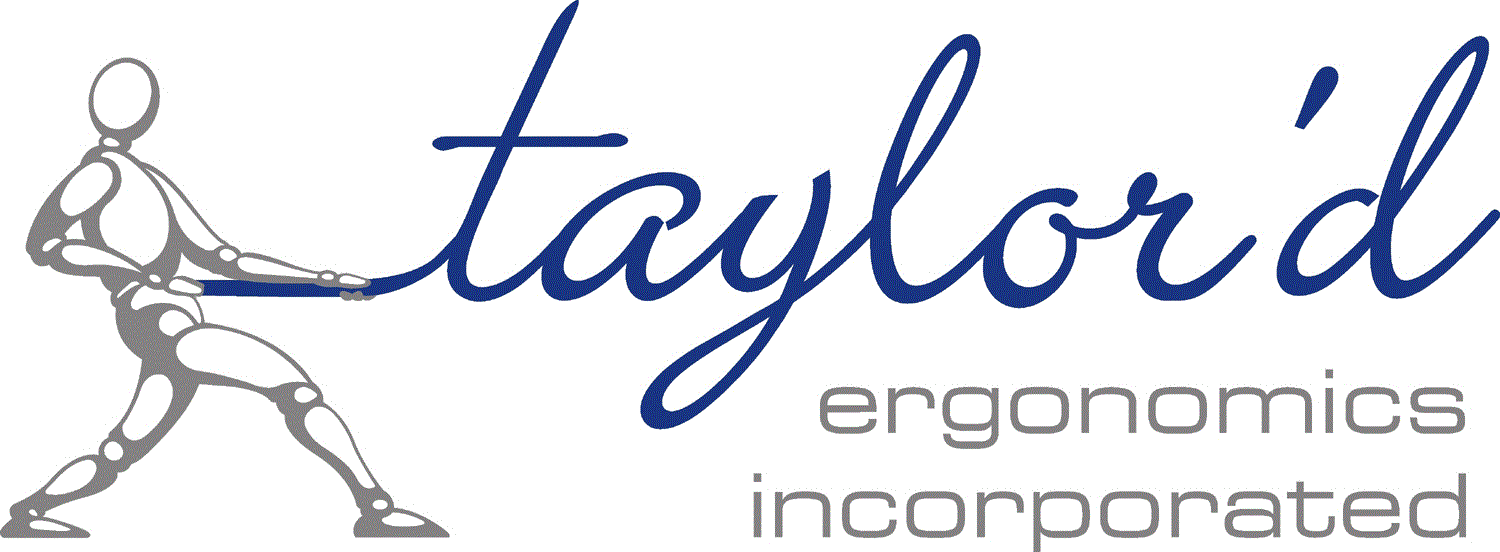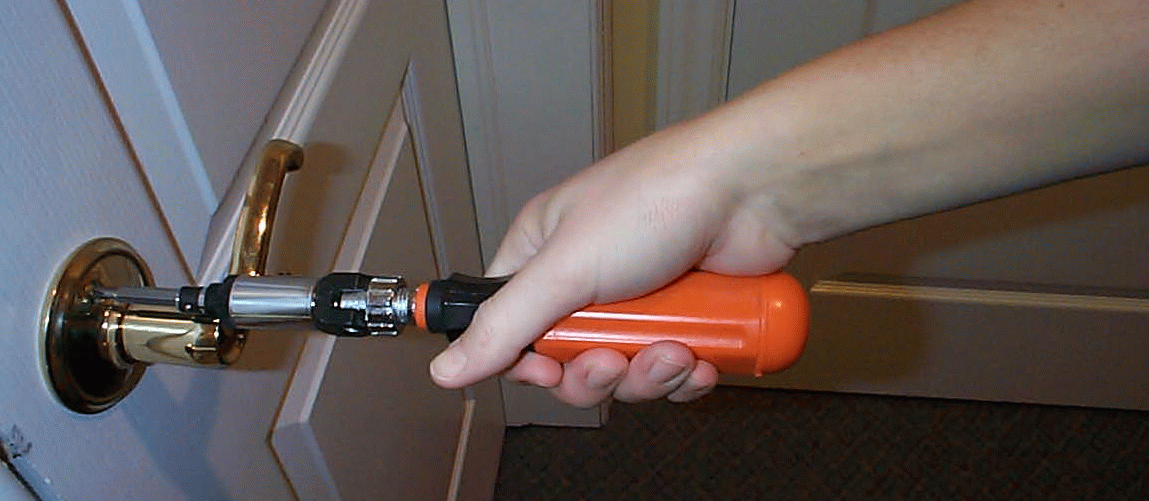In 2018, the WSIB will be changing the way claims for stress are handled, and this change has influenced our best practice for documenting job demands. Until recently, we have not spent a lot of time considering cognitive demands analyses (CDAs) as a “service”, beyond what is already included in our physical demands analysis (PDA). We’ve always documented some cognitive demands, including cooperative work, time pressures, and multi-tasking. However, we did so in a more qualitative way – if multi-tasking was required, we would describe the context in which it was required, but we didn’t rank it on a scale. For a technician required to remove and replace door hardware (shown above), we would have identified that multi-tasking is required (to permit workers to pass through the door), but we would not have graded it on a scale, or reported how frequently this was required.
We gathered data about cognitive demands during the process of completing the PDA – as we watched the job, we’d ask the employee questions about what the job required. We know that cognitive demands don’t have to be described in a PDA, but we’ve always thought of our PDA as the “Cadillac” – it includes a lot features that aren’t technically required, but are helpful when managing claims, placing injured workers, or completing a risk assessment.
When we saw a need in the market for CDAs, we did some research, to see how much work would be involved in developing a CDA template. After lots of digging, we realised that we’ve essentially been doing a simple CDA all along. The City of Toronto researched and published what appears to be the “gold standard” of CDA criteria…..and we’ve been using these for years, albeit less strictly than we will be in the future.
We’ve recently overhauled the cognitive, behavioural, communications and sensory demands sections in our PDA, ensuring that the ergonomist selects one of several graded criteria for each demand, and has space to describe the context of each demand for each task, and within the job as a whole. We did use the City of Toronto criteria, but we also added some other categories that we thought were useful.
We will continue to gather info about cognitive demands as we observe and interview the worker, but we’ll also be spending more time with the supervisor, trying to fully understand the extent to which each demand is present, and the consequence of a mismatch between worker capabilities and job demands. We’ll also be asking about “typical” and “peak” conditions, so the reader of our reports can differentiate a “normal” day from a “challenging” day.
Get a head start on incorporating cognitive demands into your job descriptions, JHAs, JDAs, or PDAs, before the WSIB starts asking. Contact us at carrie@taylordergo.com, or 519-623-7733! We can do these assessments for you, or you can join us for PDA/CDA training on January 10 and 11 in Kitchener, so you can do them yourself, in-house!


